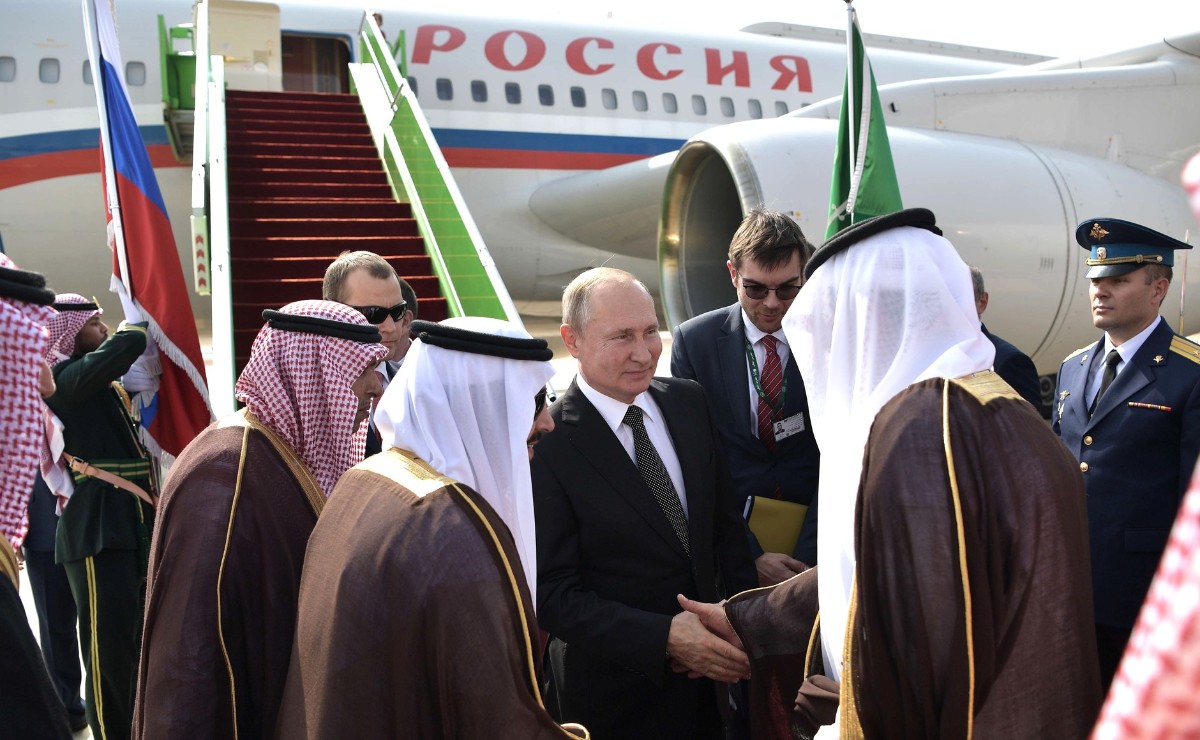 Courtesy: Kremlin
Courtesy: Kremlin
Russia Resurgent: Syria Allows Russia to Take Center Stage in Mid East
“The tectonic plates” of the Middle East are shifting, with “a seismic strategic recalculation in the region” occurring. Upset in the region began last Monday, when President Trump ordered the withdrawal of American troops from northeastern Syria. Trump’s decision followed a call with Turkish leader Recep Erdogan. Interpreting the move as a greenlight for operations in Syria, last Wednesday Turkey launched an incursion into Syria.
Events in Syria are distressing for several reasons. First, the withdrawal of American troops introduced new levels of instability to the Syrian security environment. Subsequent moves approaching a full withdrawal will only exacerbate the situation while simultaneously reducing Washington’s ability to affect things on the ground. A closely related concern is the future of ISIS, which was already “enjoying a resurgence” prior to the President’s decision. An emboldened Islamic State could turn its eyes on the “at least 10,000” ISIS prisoners in northeastern Syria, located in camps whose security is jeopardized by the Turkish advance. Finally, the decision to withdraw troops essentially threw allied Kurdish forces in the SDF to the wolves, sparking accusations of Trump’s “betrayal” of American allies instrumental in the fight against ISIS. Trump’s move “’hammered a deadly nail in the coffin of the Kurdish dream.’”
According to one critic, “we are witnessing in real time the collapse of American influence” in the region. It is hard to overstate the importance of these events on international audiences. It will no doubt be a blow to U.S.-Saudi relations, where officials “are still dismayed by [Trump’s] unpredictable and quixotic approach.” In Israel, authorities “came face to face with the cold, hard reality of the damage caused” by the President’s actions. Within the region, states “are looking to diversify their partnerships away from a heavy dependence on the West.”
All of this “is an unexpected gift for Putin,” who has used the “United States’ declining reputation” to accelerate his “quest for ‘derzhavnost,’ or ‘great-powerness.’” Russia has long thought of itself “as the natural player in the grand design of the geopolitics” in the Middle East. Watching “the Turks and the Americans unravel five years of success,” Putin has exploited Western missteps to secure “Russia’s status as undisputed power-broker” in the region. After years of waiting in the wings, Putin has transformed from eager understudy to lead.
Russia moved quickly “to fill the vacuum left in northern Syria.” After the U.S. abandoned the Kurds, Putin swept in to play a “key role” in negotiating an agreement between them and Assad, which folds Kurdish fighters once aligned with the United States “into the Syrian army’s Fifth Corps, under Russian command.” Apparently, the agreement received at least a tacit blessing from Trump. Within a day of the American withdrawal, “President Putin deployed forces to back Syrian troops deep inside Kurdish-controlled territory.” By last Thursday, a Russian flag flew above a Kurdish militia group’s watch tower. In some cases, Russians are literally replacing the departing Americans. Russian troops took over a “hastily evacuated” base abandoned by American troops, in a first since Vietnam.
Troop movements accompany a Russian diplomatic offensive. As Russia cemented its position in Syria, Putin received a “royal welcome” in the United Arab Emirates and Saudi Arabia. This diplomatic press comes as “the wider implications” of the American withdrawal “are still being felt in Riyadh, Abu Dhabi and even Jerusalem.” President Trump’s policies reverse 50 years of efforts to “keep Russia out of the Middle East.” With the door open, Putin hopes to fuel the doubts of American allies while convincing them Russia is a “worthy alternative.” Russia has been willing to stand by its allies, like Assad, and instead of preaching at the Saudis in the wake of Khashoggi’s death Putin greeted the Saudi Crown Prince with a high five. This effort, at least in part, seems to be working, with the Saudi Ambassador to the UK stating “Russia often understands the East Better than the West does.”
Vice President Pence’s effort to a secure a ceasefire in Syria shows the United States should not be entirely written out. However, the U.S. ability to enforce the agreement is unclear. It is also unclear how the United States will contribute to resolving things after the end of the apparent pause in Turkish military operations. The timing of the five-day ceasefire hints at the decline of the United States as arbitrator of peace in the region. When it expires, Erdogan will consider his next steps in Moscow, as he and Putin work to resolve the crisis.





